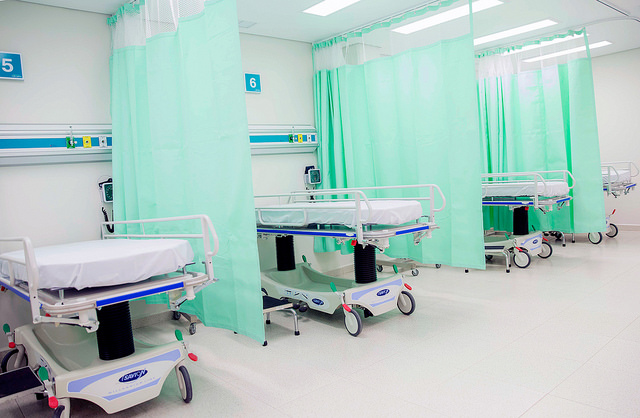
Medical science is one the branches of science in which Muslims excelled the most. Muslims left an indelible effect in medicine and made such a huge contribution that till very recently, about up to a century ago, Muslims’ writings formed part of curriculum in the Western medical schools.
Muslims embraced the knowledge of medical science from different sources. Historically speaking, in earlier stages, medicine was more of synthetic nature with influences from Greek, Persian, Syriac, and Indian medicine. It conjoined the observational approach of the Hippocratic school of thought with theoretical and philosophical methods of Galen.
Greco-Roman schools of medicine defined the illness within the framework of four constitutional humors namely melancholic, sanguineous, choleric, and phlegmatic. There were three functional fluids with the names arterial, venous blood, and nervous fluid, and three spirits, vital, natural, and animal. All of these components were essential in proper balance for a good health. So the illness was understood to be the imbalance in these basic elements. Besides forces of magic and evil spirits, which were also largely attributed to cause illness in the West and other regions.
When Muslims came on the stage of medical science, they gave the Greco-Roman schools a rational form and rejected the superstitious parts. Muslim physicians put forward the view that the life’s stresses and strains immensely affected the humors and they had the view that patient’s own intrinsic factors, which is now verified by modern medical science too, along with medicinal treatment can help in curing the illness.
The credit of establishing the modern style hospitals goes exclusively to Muslims. Before the great organized and planned hospitals established by Muslims, the hospitals in Europe were more associated with religious orders and monasteries and did not have a clear and broad scope in treating illness as in the ones established by Muslims. The first and most elaborate hospital was built in eighth century in the period of Harun al-Rashid. Soon throughout the Muslim lands, institutions on similar pattern started coming up. The hospitals were well organized and equipped with all necessary medicines and equipments needed in treating patients. They were managed and operated by highly educated and professional staffs. “The typical Islamic hospital complex, as it existed in Cairo, Baghdad, Damascus, and later in many Turkish cities, was a remarkably resourceful enterprise…These monumental establishments, transplanted intact to virtually any Western metropolis today, would hardly seem, a thousand years behind the times; perhaps they might seem somewhat mid-Victorian in character with Eastern ambiance…The medieval Muslim hospital’s organization and layout were considerably advanced for their time. Separate wards were provided for male and female patients. Special wards were maintained for internal diseases, ophthalmic disorders, and orthopedics cases, as well as for other surgical patients, the mentally ill, and patients with contagious diseases. Extensive training and pharmacological facilities were standard. All great hospitals were host to physicians who came from all parts of the Muslim world to function and resident administrators, specialists, practitioners, and visiting teachers. Apprenticeships were offered to the deserving students. Outreach was considerable, and traveling clinics and dispensaries provided wide areas with professional treatment and care. Military hospitals were organized to accompany armies on the move.” [1]
There was great emphasis on medical ethics and the relationship between the doctor and patients. These matters concerning to the behavioral aspects of medical practitioners were part of study of medical sciences. Al-Ruhawi’s Adab al-Tabib (The Physician’s Code of Ethics), written in the ninth century, is among the first Arabic text which dealt with this subject. This book of al-Ruhawi particularly advises the medical interns about the ethical aspects of medical profession.
The doctors and medical professionals enjoyed a great social status in Muslim societies and medical science was never divorced from the curriculum of religious sciences. The physician in general was expected to be a man of high moral and virtuous character who had great combination of scientific acumen and moral good qualities. His intellectual powers and medical skills were never supposed to be deviated from reliance on God and religious faith. In the twelfth century, Nizami-i Arudi of Samarkand, in his “Four Discourses” delineates the expectations from a physician: “The physician should be of tender disposition and wise nature, excelling in acumen, this being the nimbleness of mind in forming correct views, that is to say a rapid transition to the unknown from the known. And no physician can be of tender disposition he fails to recognize the nobility of human soul, nor of wise nature unless he is acquainted with logic, nor can he excel in the acumen unless he be strengthened by the God’s aid; and he who is not acute in conjecture will not arrive at a correct understanding of any ailment.” [2]
The medical staff and personnel were given through training by celebrated teachers. The students would come from far places to get training in the profession. The practice of medical profession required license, and the license was provided only after qualifying the rigorous examinations.
The physicians were allowed to experiment and the write ups of their cases, and the results of experiments could be read by anyone. The successful procedures in experiments were documented which were available to other medical professionals for reading to enhance their medical knowledge and acumen.
Today, much of the successes of the medical world are due to the foundations laid by Muslim doctors hundreds of years ago. In future articles, we will discuss more of these successes.
Editor’s note: Islamic Insights is honored to host a series on “The Muslim World’s Contributions to Science” by esteemed guest columnist Brother Asad Raza. His column will feature contributions from Muslims in different science fields. This article is focused on advancements in the medical science field.
1. Science in Medieval Islam by Howard R. Turner
2. As quoted in Science & Civilization in Islam by Seyyed Hossein Nasr





